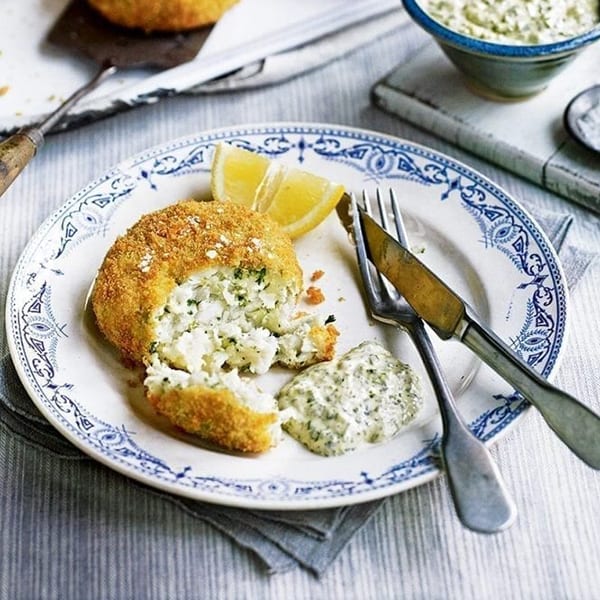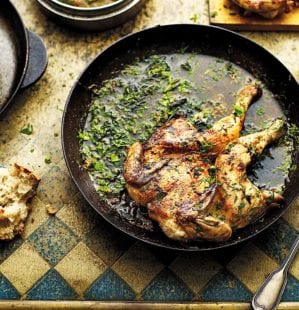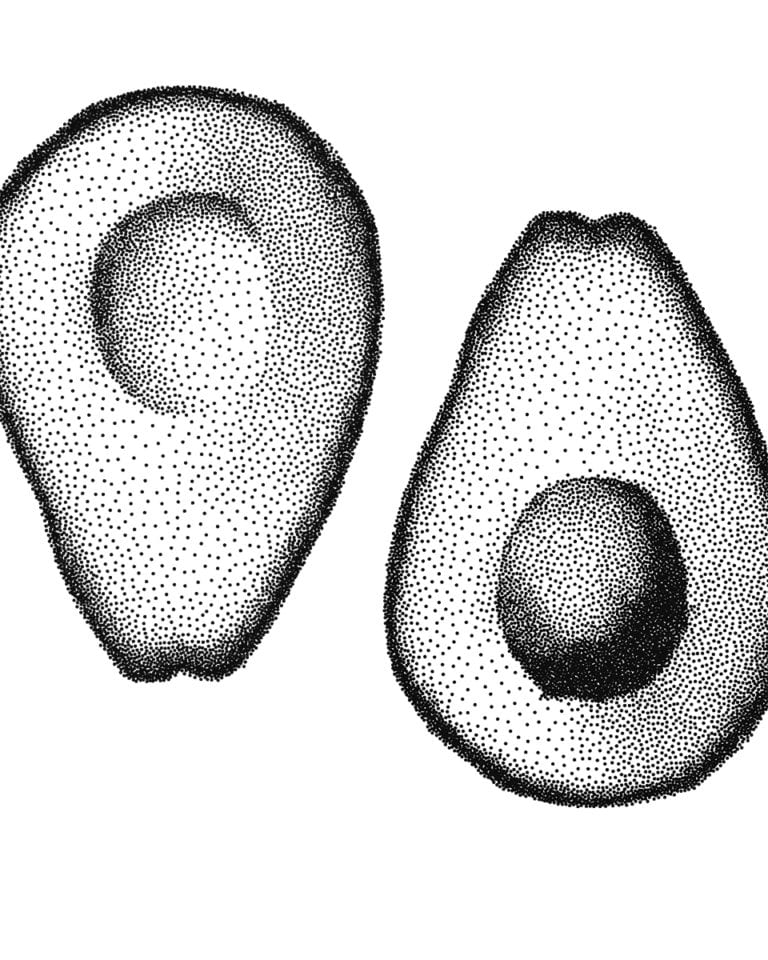Is it wrong to reinterpret recipes?
Why do so many people take it upon themselves to reinterpret recipes, then complain when they don’t turn out so well? Regardless of our creative urges, there are good reasons for doing it exactly by the book.

It begins with the most innocent of alterations. You’ve run out of caster sugar so you use granulated. Caroline is funny about green pepper so you sub in yellow. Then there’s that evening where you realise you should have started marinating the lamb yesterday and panic-rub three times the amount into
the chops, hoping for the best.
So far, so forgivable. We’ve all been there. But for some people, the temptation to tinker goes beyond pepper colour to wholesale changes: swapping spices; substituting the couscous of Ottolenghi’s famed green couscous dish for raw cauliflower ‘couscous’ (the inverted commas are for a reason); or spurning
the rich oiliness of sardines in Nathan Outlaw’s soused sardines with red cabbage for a preferred, “less fishy” fish such as plaice.
In such cases, to claim your creation is “an Ottolenghi” or “out of Nathan” is an insult not just to the chef, but to the professionals who tested the recipe before it was published (note: when this magazine publishes recipes from a book, every dish is re-tested by the in-house food team). Every quantity, temperature and portion size is double-checked. Every element of a recipe is carefully adjusted – only for a ‘creative’ cook to come along and snub that dazzling green salsa in favour of mayonnaise.

Of course, there can be good reasons to alter recipes: time constraints, allergies, violent dislikes – and the guest who announces at the 11th hour she’s gone vegan. There are herbal flourishes you might wish to leave off, or adjustments to seasoning.. Yet the spirit of the recipe should remain the same.
“Did you enjoy it?” the owner of my local cookbook shop will ask when
a customer describes how they cooked dish Y, but changed X. Whatever their answer, his retort is the same: “Well, you’d have enjoyed it more if you’d stuck to the recipe.” His salesmanship needs work but I appreciate his safeguarding of recipes that trained, experienced, hardworking kitchen professionals
have taken the time to create.
You think there’s no reasoning behind the pickled radishes that come with that Olia Hercules hake dish? You may as well ask why Monet bothered with the water lilies. Remove the pickle and you’re cutting out the historical heart of the recipe, which was inspired by Hercules’ heritage (she was born in Ukraine). A recipe is more than a set of instructions. It’s a legacy of its author: their life, travels, and the people they’ve met, combined into something scrumptious. Each ingredient tells a story and serves a purpose – whether it’s Claudia Roden’s dukkah or Nigella Lawson’s use of double cream.

I know many chefs are open to readers’ ‘interpretations’. I understand that dishes evolve; and occasionally these tweaks can result in new levels of flavour. But the vast majority of reinterpretations do a disservice to the author and to those having to eat them. The response to a recipe premised on an ingredient you don’t have or dislike should be to not cook it – not to change it beyond all recognition, then blame the chef for their poor taste.
Twitter doesn’t make you a journalist; Instagram doesn’t make you a professional photographer; reading the NHS website doesn’t make you a doctor; and watching every series of MasterChef doesn’t give any of us licence to overrule the work of dozens of food writers and chefs.
Subscribe to our magazine
Food stories, skills and tested recipes, straight to your door... Enjoy 5 issues for just £5 with our special introductory offer.
Subscribe
Unleash your inner chef
Looking for inspiration? Receive the latest recipes with our newsletter


